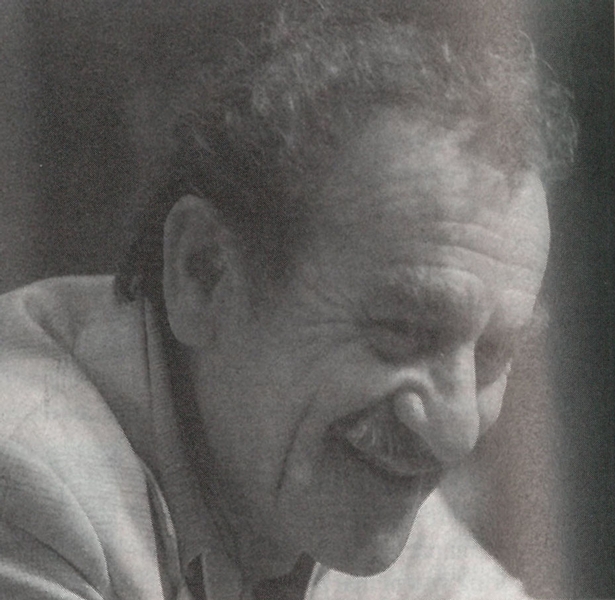
 The Spiros G. Geotis Prize is an award for the best student presentation(s) at the AMS Conference on Radar Meteorology. The award recipients are selected by a committee established by the program committee. High school, undergraduate, and graduate student presenters are eligible for the award. Upon receiving the award, students receive a cash prize, an AMS reference book, and a certificate.
The Spiros G. Geotis Prize is an award for the best student presentation(s) at the AMS Conference on Radar Meteorology. The award recipients are selected by a committee established by the program committee. High school, undergraduate, and graduate student presenters are eligible for the award. Upon receiving the award, students receive a cash prize, an AMS reference book, and a certificate.
This award was established to honor the pioneering contributions of Spiros G. Geotis to radar meteorology and his role as a mentor. Spiros (who went by "Speed") worked at Massachusetts Institute of Technology (MIT) for 40 years. Speed led efforts critical to the development of weather radars throughout his career, and contributed immensely to studies of radar polarization, hail, lightning, and microphysics. He was dedicated to mentoring students at MIT, including several who became influential researchers in radar meteorology. More information about Spiros Geotis's contribution to radar meteorology can be found in a Bulletin of the American Meteorological Society article describing his career, this award, and personal accounts of those who worked closely with him.
Past recipients of the Spiros G. Geotis Prize include:
| Conf. | Year | Recipient | Affiliation | Paper Title |
| 39th | 2019 | David Schvartzman | Univ. of Oklahoma/CIMMS | Design of practical pulse compression waveforms for polarimetric phased array radar |
| 38th | 2017 | Nicholas McCarthy | Univ. of Queensland | The Bushfire Convective Plume Experiment: A Mobile X-band Field Campaign into Fire-Driven Convection in Australia |
| 37th | 2015 | Cameron Kleinkort | Colorado State Univ. | 3D Shape Reconstruction of Snowflakes from Multiple Images, Meshing, Dielectric Constant Estimation, Scattering Analysis, and Validation by Radar Measurements |
| 36th | 2013 | Ya-Chien Feng | McGill University | Improving the Accuracy of Near-Surface 3-D Radar Refractivity |
| 35th | 2011 | Krzysztof Orzel | Univ. of Massachusetts | Mobile X-band Dual Polarization Phased-Array Radar: System Requirements and Development |
| 34th | 2009 | David Bodine | Univ. of Oklahoma | A New Frontier for Mobile Weather Radar - The Atmospheric Imaging Radar: Meteorological Implications and Requirements |
| 34th | 2009 | Shinju Park | McGill University | Estimation of Low-Level Atmospheric Refractivity Gradients Using Ground Echo Coverage |
| 33rd | 2007 | KaoShen Chung | Environment Canada | Initialization of Midlatitude Convective Storms by Assimilation of Single Doppler Radar Observations |
| 32nd | 2005 | Marko Orescanin | Univ. of Oklahoma | Signal Processing of Beam-Multiplexed Data from Phased-Array Weather Radar |
| 31st | 2003 | Kimberly Comstock | Univ. of Washington | Evolution of Drizzle Cells in SE Pacific Stratocumulus |
| 30th | 2001 | Katja Friedrich | German Aerospace Center - DLR | Wind Vector Determination with Bistatic Multiple-Doppler Radar Network |
| 30th | 2001 | Claire Tinel | Center for the Study of Earth and Planets Environment | An Airborne Radar and Lidar Combination to Document Microphysical and Radiative Parameters of Clouds |
| 29th | 1999 | Ramon de Elia | McGill Univ. | Sidelobe Contamination in Bistiatc Radars |
| 29th | 1999 | Jeremy Moore | North Carolina State University | |
| 28th | 1997 | Sabine Goke | Swiss Federal Inst. of Tech. (ETH), Zurich | Aggregation and Breakup of Hydrometeors in the Melting Layer |
| 28th | 1997 | Eszter J. Barthazy | Swiss Federal Inst. of Tech. (ETH), Zurich | Microphysical Properties of Hydrometeors within the Melting Layer |
| 27th | 1995 | Lawrence Carey | Univ. of Alabama Huntsville | Positive Cloud-to-Ground Lightning in Severe Hailstorms: A Multiparameter Radar Study |